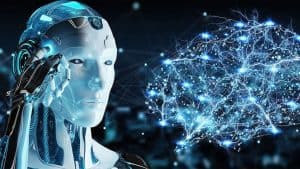AI Revolution: Friend or Foe in the Job Market?
Date: January 1, 2024
Will AI Take Our Jobs?
Artificial intelligence (AI) is no longer a futuristic concept but an ever-present reality. With its rapid advancement and integration into various industries, concerns about its impact on the job market are understandable. AI has already proven its capability to perform tasks that were once considered exclusively human domains, raising questions about job security and the future of work.

However, it’s essential to recognize that AI also creates new opportunities and transforms existing roles. As we navigate this evolving landscape, it’s crucial to understand the potential benefits and challenges that AI brings to the job market.
The Impact of AI on Various Industries
- Healthcare: AI assists in diagnosing diseases, analyzing medical images, and personalizing patient care. While it enhances accuracy and efficiency, certain jobs may become redundant.
- Transportation: Autonomous vehicles and drones are already a reality, reducing the need for human drivers and pilots. However, new roles in AI maintenance and oversight emerge.
- Retail and E-commerce: AI-powered recommendations and customer service chatbots enhance the shopping experience. This may reduce the need for certain customer-facing roles but creates opportunities in AI development and data analysis.
- Manufacturing: AI and robotics streamline production processes, improving efficiency and safety. However, this could displace workers in repetitive tasks, requiring them to upskill for more technical roles.
- Creative Industries: AI is now capable of generating art, music, and writing. While this may spark creativity, it also raises concerns about the displacement of human artists and writers.
Our Job Future with AI
AI brings both opportunities and challenges to the job market. On the one hand, it creates new roles that didn’t exist before, such as AI researchers, data scientists, and machine learning engineers. These roles are highly specialized and in high demand. On the other hand, certain routine and repetitive jobs may become automated, leading to a skills gap and the need for reskilling.
The key lies in adapting to this changing landscape. Upskilling and reskilling programs can help workers stay relevant and transition into new roles. Embracing a culture of lifelong learning ensures that individuals can keep pace with technological advancements and remain employable. Additionally, organizations play a crucial role in supporting their employees through this transition, offering training programs and fostering a culture of continuous development.
Moreover, ethical considerations come into play. As AI enters more sensitive domains, such as healthcare and legal services, establishing ethical guidelines and regulations becomes essential. Ensuring that AI systems are transparent, fair, and accountable will be critical to maintaining trust and public confidence.
In conclusion, the AI revolution is well underway, and its impact on the job market is undeniable. While it may disrupt certain industries and roles, it also opens doors to new opportunities and innovations. By embracing change, investing in education, and prioritizing ethical practices, we can harness the benefits of AI while mitigating its potential drawbacks.
Stay tuned to our blog as we continue exploring the fascinating world of AI and its impact on our lives, including the future of work. The possibilities are endless, and it’s up to us to shape a future where AI complements and enhances our capabilities rather than replaces them.
Related Posts:
AI in Nigeria: An Ethical Journey to Making Money with AI
AI Ethics 101: The Rising Tide of AI in Nigeria and How You Can Ride the Wave to Financial Freedom
10 Exciting Jobs You Can Do with AI in Africa: A Step-by-Step Guide




